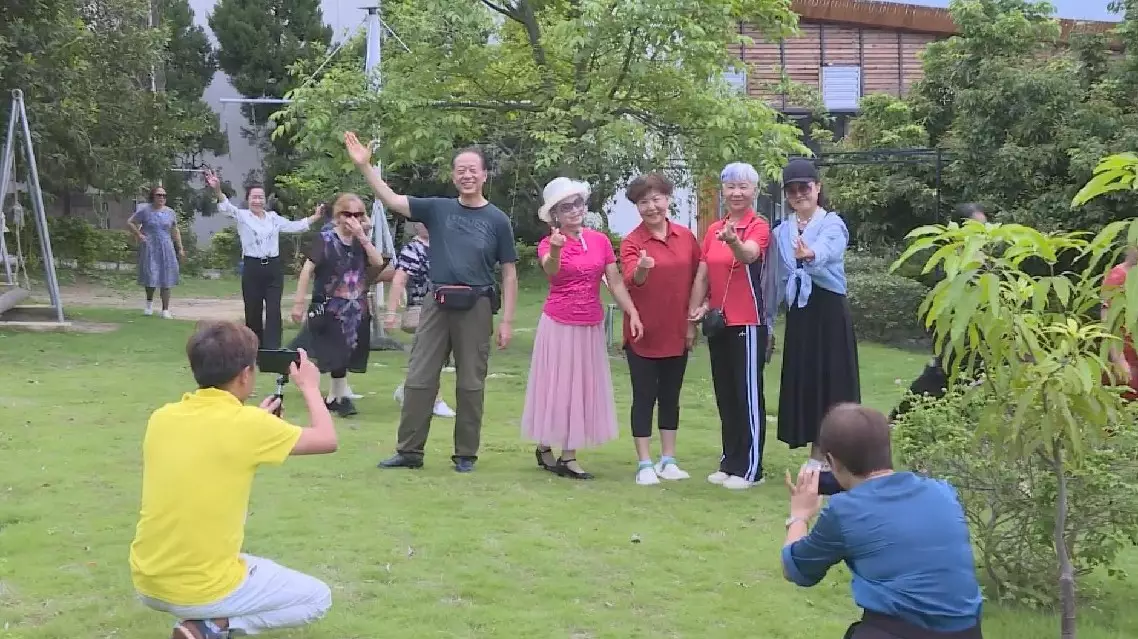Flocks of migratory birds have arrived at wetland reserves in the lower latitude regions in China to spend their winter as the temperature is getting lower.
Tens of thousands of wild geese have been spotted foraging and frolicking in the floodplain of the Yellow River in Heze City's Dongming County of east China's Shandong Province. Wheat seedlings are the main food for the wild geese in winter. Local agricultural experts said that wild geese mainly eat wheat seedlings, which generally do not affect the root system of the wheat, so it has no significant impact on yield.
Furthermore, the local government has also coordinated with insurance companies to include "damage by wild animals" as a clause in wheat insurance compensation terms. If there is a decrease in production due to migratory birds, farmers can also receive compensation.
Moreover, Dongming has planned and constructed dozens of observation stations along the Yellow River, enabling round-the-clock observation and recording. Additionally, Dongming has established a professional conservation team for wintering of migratory birds, conducting 24-hour patrols along the riverbanks during the migration season that spans several months.
In addition, Wuhan City of central China's Hubei Province is seeing increasing flocks of migratory birds coming to its wetlands to spend this winter.
"Through the binoculars, I see many birds perching there. Those trees are all white, just like it has snowed. Quite peculiar," said Zhou, a tourist.
As of the end of October, a total of 266 species of wild birds were monitored in key areas of Wuhan in a single month. By the peak period in December, nearly 200,000 wild birds will be wintering in Wuhan. Migratory birds flying from the northern area have been arriving in various parts of east China's Jiangsu Province. They gather in rivers, lakes, or coastal wetlands, preparing for the winter ahead.

China's wetland reserves see arrival of wintering migratory birds
A growing number of seniors who are retired and energetic choose to travel and live in different places with a "migratory bird" lifestyle, injecting new momentum into the silver economy in China.
In a country so vast like China, the climate varies drastically from place to place, prompting many health-conscious retirees to move regularly to cooler places in the summer, and to warmer places in the winter.
Ms. Li, who is from northeast China's Jilin Province, fell in love with Xishuangbanna in southwest China's Yunnan Province, a place without winter, after her first visit in 2021.
Since then, she has come to Xishuangbanna to "spend the winter" and returns to northeast China in April to "spend the summer" every year.
"The good air quality makes me feel comfortable here. It's suitable for the elderly to live in for retirement. This is a place with abundant plants and the food price here is affordable," said Ms. Li.
Compared with traditional tourism, the pace of sojourn is slower and the duration longer, allowing people to enjoy a more relaxed and comfortable life.
From January to October this year, the number of tourists to Yunnan has surpassed one billion, with the average length of stay per tourist increasing from 2.8 days to 3 days.
"The good water quality, air, and the environment here make me want to stay even more, and I just can't bear to leave," said Xia Quan, another sojourner.
"We will provide different types of food based on where the people come from. For those coming from the north, we'll offer wheaten food. As for activities, we have places like game room and table tennis room for the elderly to enjoy their leisure time," said Yang Hongwei, an innkeeper.
Official data shows that China was home to 297 million people aged 60 and above by the end of 2023, accounting for 21.1 percent of the country's total population.
As a new generation of healthy, vigorous and richer Chinese adults enter retirement age, the number of old-age "migratory birds" is expected to keep growing in the following years.

Chinese retirees embrace "migratory bird" lifestyle, driving silver economy










